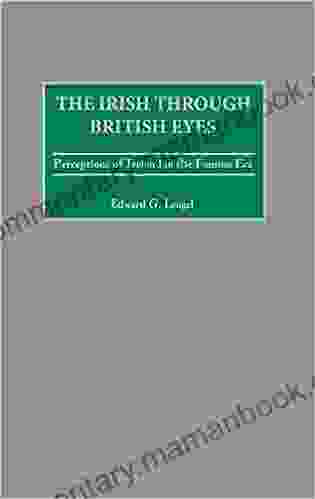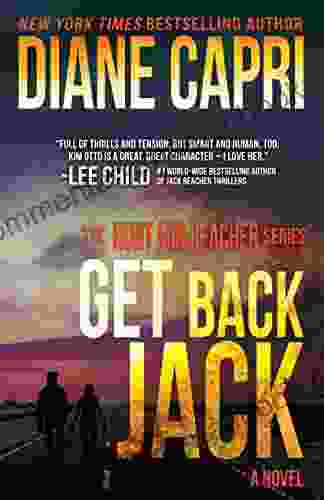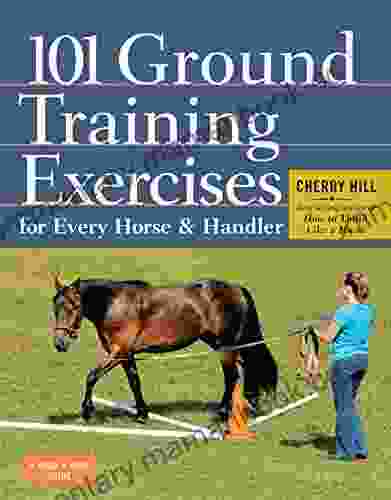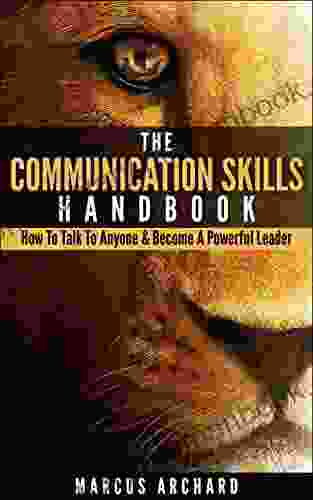Irish Through British Eyes: A Historical Perspective on Anglo-Irish Relations

The relationship between Ireland and Great Britain has been a subject of fascination and debate for centuries. From the earliest recorded interactions to the present day, the two nations have been entwined in a complex and often fraught history. This article will explore the relationship between Ireland and Great Britain from a British perspective, examining the historical events, cultural stereotypes, and political dynamics that have shaped its evolution.
Historical Overview
The history of Anglo-Irish relations is a long and storied one, dating back to the Norman invasion of Ireland in the 12th century. This invasion established a British presence in Ireland that would last for over 800 years. During this time, the British gradually expanded their control over the island, suppressing Irish resistance and imposing their own laws and customs.
5 out of 5
| Language | : | English |
| File size | : | 2171 KB |
| Text-to-Speech | : | Enabled |
| Word Wise | : | Enabled |
| Print length | : | 264 pages |
| Screen Reader | : | Supported |
One of the most significant turning points in Anglo-Irish relations came in the 16th century, when the English Reformation led to a religious split between England and Ireland. While England adopted Protestantism, Ireland remained predominantly Catholic. This religious difference became a major source of tension between the two nations, and it would continue to play a role in Anglo-Irish relations for centuries to come.
The 19th century saw a rise in Irish nationalism, as the Irish people began to demand self-government. This movement, led by figures such as Daniel O'Connell and Charles Stewart Parnell, culminated in the Easter Rising of 1916. This uprising was brutally suppressed by the British, but it marked a turning point in Anglo-Irish relations. In the years that followed, the British gradually granted Ireland more autonomy, and in 1922, the Irish Free State was established.
Cultural Stereotypes
Throughout history, the British have developed a number of cultural stereotypes about the Irish. These stereotypes have often been negative, depicting the Irish as lazy, violent, and superstitious. Such stereotypes have been used to justify British rule over Ireland and to marginalize the Irish people. While these stereotypes have been challenged in recent years, they continue to influence British attitudes towards Ireland.
One of the most enduring stereotypes of the Irish is that they are lazy. This stereotype dates back to the 16th century, when the English observed that many Irish people lived in poverty and relied on subsistence farming. The English interpreted this as laziness, and they used it to justify their own claims to Irish land. This stereotype has persisted to the present day, and it is often used to denigrate the Irish people.
Another common stereotype of the Irish is that they are violent. This stereotype dates back to the 17th century, when the Irish fought a series of wars against the English. The English depicted the Irish as savage and barbaric, and they used this to justify their own use of violence against the Irish people. This stereotype has also persisted to the present day, and it is often used to justify anti-Irish discrimination.
Political Dynamics
The political relationship between Ireland and Great Britain has been characterized by conflict and tension. From the Norman invasion to the present day, the two nations have been locked in a struggle for control over Ireland. This struggle has been played out in a variety of ways, including wars, rebellions, and political negotiations.
One of the most significant political developments in Anglo-Irish relations was the Act of Union in 1801. This act united Ireland with Great Britain, creating the United Kingdom of Great Britain and Ireland. However, the union was deeply unpopular in Ireland, and it led to a rise in Irish nationalism. The Irish people fought for independence for over a century, and they finally achieved it in 1922, when the Irish Free State was established.
Despite the establishment of the Irish Free State, Anglo-Irish relations remained strained. The Irish government pursued a policy of neutrality during World War II, which angered the British. In addition, the British government continued to claim sovereignty over Northern Ireland, which led to a conflict known as the Troubles. The Troubles lasted for over 30 years, and they resulted in the deaths of over 3,500 people.
In 1998, the Good Friday Agreement was signed. This agreement brought an end to the Troubles, and it established a power-sharing government in Northern Ireland. The Good Friday Agreement has been hailed as a major step forward in Anglo-Irish relations, and it has helped to improve relations between the two nations.
The relationship between Ireland and Great Britain is a complex and multifaceted one. It has been shaped by centuries of historical events, cultural stereotypes, and political dynamics. While there have been periods of conflict and tension, there have also been periods of cooperation and understanding. Today, the two nations enjoy a close relationship, and they work together on a variety of issues, including trade, security, and climate change.
The study of Anglo-Irish relations offers a unique perspective on the history of both nations. It can help us to understand the ways in which different cultures interact with each other, and it can help us to learn from the mistakes of the past. As we move forward into the future, it is important to remember the lessons that we have learned from Anglo-Irish relations. We must strive to build a more just and equitable world, one in which all nations can live in peace and harmony.
5 out of 5
| Language | : | English |
| File size | : | 2171 KB |
| Text-to-Speech | : | Enabled |
| Word Wise | : | Enabled |
| Print length | : | 264 pages |
| Screen Reader | : | Supported |
Do you want to contribute by writing guest posts on this blog?
Please contact us and send us a resume of previous articles that you have written.
 Top Book
Top Book Novel
Novel Fiction
Fiction Nonfiction
Nonfiction Literature
Literature Paperback
Paperback Hardcover
Hardcover E-book
E-book Audiobook
Audiobook Bestseller
Bestseller Classic
Classic Mystery
Mystery Thriller
Thriller Romance
Romance Fantasy
Fantasy Science Fiction
Science Fiction Biography
Biography Memoir
Memoir Autobiography
Autobiography Poetry
Poetry Drama
Drama Historical Fiction
Historical Fiction Self-help
Self-help Young Adult
Young Adult Childrens Books
Childrens Books Graphic Novel
Graphic Novel Anthology
Anthology Series
Series Encyclopedia
Encyclopedia Reference
Reference Guidebook
Guidebook Textbook
Textbook Workbook
Workbook Journal
Journal Diary
Diary Manuscript
Manuscript Folio
Folio Pulp Fiction
Pulp Fiction Short Stories
Short Stories Fairy Tales
Fairy Tales Fables
Fables Mythology
Mythology Philosophy
Philosophy Religion
Religion Spirituality
Spirituality Essays
Essays Critique
Critique Commentary
Commentary Glossary
Glossary Bibliography
Bibliography Index
Index Table of Contents
Table of Contents Preface
Preface Introduction
Introduction Foreword
Foreword Afterword
Afterword Appendices
Appendices Annotations
Annotations Footnotes
Footnotes Epilogue
Epilogue Prologue
Prologue E M Smith
E M Smith Steven Mann
Steven Mann Claire Akin Mba
Claire Akin Mba Brenda Mohammed
Brenda Mohammed Tom Wolfe
Tom Wolfe John L Hosp
John L Hosp Janice Silverthorne Urban
Janice Silverthorne Urban J G Ballard
J G Ballard Darren Mitchell
Darren Mitchell Edward Porter Alexander
Edward Porter Alexander Shannon Stocker
Shannon Stocker Eiichiro Oda
Eiichiro Oda Cengage Learning Gale
Cengage Learning Gale Mel Bay
Mel Bay Caroline Corcoran
Caroline Corcoran Sarah L Schuette
Sarah L Schuette Ad Putter
Ad Putter Shelly Mettling
Shelly Mettling Paul Prudhomme
Paul Prudhomme J Best
J Best
Light bulbAdvertise smarter! Our strategic ad space ensures maximum exposure. Reserve your spot today!

 Emilio CoxPaper Sloyd Handbook for Primary Grades: A Guide to Developing Creativity and...
Emilio CoxPaper Sloyd Handbook for Primary Grades: A Guide to Developing Creativity and... Jett PowellFollow ·10k
Jett PowellFollow ·10k Calvin FisherFollow ·6.1k
Calvin FisherFollow ·6.1k Holden BellFollow ·12.7k
Holden BellFollow ·12.7k Gary CoxFollow ·9.8k
Gary CoxFollow ·9.8k H.G. WellsFollow ·17.1k
H.G. WellsFollow ·17.1k Deacon BellFollow ·12.6k
Deacon BellFollow ·12.6k Gil TurnerFollow ·18k
Gil TurnerFollow ·18k Cormac McCarthyFollow ·3.9k
Cormac McCarthyFollow ·3.9k
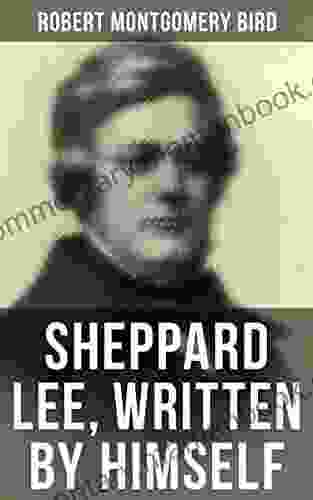
 Kelly Blair
Kelly BlairSheppard Lee Written By Himself: A Journey of...
In the realm of...

 George Bernard Shaw
George Bernard ShawViper Naga Brides: Unveiling the Enthralling Fantasy...
In the realm of...
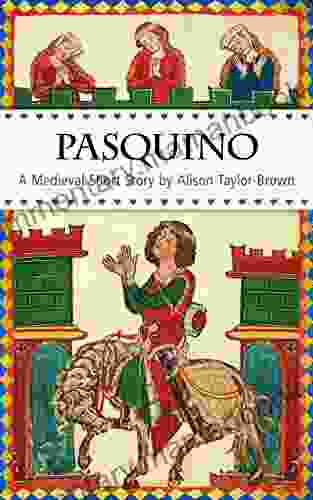
 Neil Gaiman
Neil GaimanOnce Upon a Hill in Tuscany: A Medieval Short Story
In the heart of medieval...

 Preston Simmons
Preston SimmonsBody Bereft: Exploring Loss, Love, and Legacy in Antjie...
A Poetic Requiem for the Lost:...
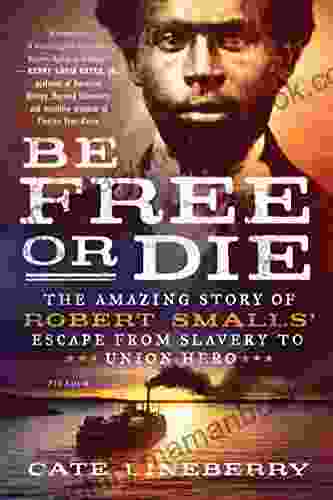
 Percy Bysshe Shelley
Percy Bysshe ShelleyThe Amazing Story Of Robert Smalls Escape From Slavery To...
The life of Robert Smalls is a testament to...
5 out of 5
| Language | : | English |
| File size | : | 2171 KB |
| Text-to-Speech | : | Enabled |
| Word Wise | : | Enabled |
| Print length | : | 264 pages |
| Screen Reader | : | Supported |


